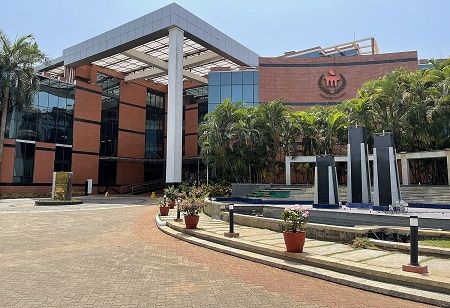-
The All India Conference of China Studies (AICCS) has been an Institute flagship since 2006. Conducted annually in association with institutions concerned with the study of China, the conference has interested people in and helped strengthen research on China in India. It provides a platform to inform one another about recent scholarly work being done at universities and research centers across different themes, which change every year. This year, the 17th Edition of the AICCS will be held in Manipal from 21-23 November 2024 in partnership with the China Study Centre, Department of Geopolitics and International Relations at the Manipal Academy of Higher Education (Institution of Eminence). The special theme for this edition is Understanding China in a Turbulent World: Geopolitical Contestation and Cooperation.
For most of the late 20th century and into the beginning of the 21st century, the geopolitical landscape of Asia remained relatively stable. The People's Republic of China (PRC) had, for much of this time, a principal objective of achieving peace and stability, so that it could concentrate on long-term domestic economic growth and modernization. China, in its strategy, exploited economic globalization to attract significant foreign investments; as for it, 'keep a low profile', and never be at the lead in international affairs. In this manner, China was able to achieve rapid economic growth, posting double-digit GDP growth rates almost for thirty years. Meanwhile, despite the fluctuations in the policies of the United States toward China-from 'containment' to 'engagement' to a mix of both, known as 'congagement'-the relationship remained largely defined by the U.S.'s dominance, as even the PRC acknowledged.
By the end of the first decade of the 21st century, the PRC had climbed to the position of the third biggest economy, ranked second in forex holdings, had acquired the label of the 'manufacturing factory' of the world, and had dazzled the international gathering with its technological capabilities at the 2008 Beijing Olympics. After that, the PRC's external posture and behavior observed a shift from the 'keeping a low-profile approach' to one based on the 'striving for achievement' policy. Scholars have debated the nature and implications of the impending 'power transition' and have embarked on theoretical exercises to explain the structural transformation of the world order that the "rise" of China heralded. More crucially, the United States and China now appear to be on the brink of an entirely new phase of engagement, marked by (power) competition, confrontation on a host of issues, and lessening possibilities of cooperation. This rivalry will likely shape the political, military-strategic, and economic futures of the region's other countries.
Over the past decade, China has used its growing economic strength to create interdependencies with several Asian nations, thus weakening some of these nations' political affiliations with the United States. At the same time, the regional countries worry that China's growing military forays in the East and South China Seas will constrain their sovereignty and interests. Therefore, they have sought to get the United States to re-engage in Asia. But while they want the US to counterbalance China in the region, a few of these nations are lining up alongside the United States to contain China militarily. The growing disenchantment with the BRI is another dimension, even as China has created an impressive financial support base to facilitate the BRI, including the Asian Infrastructure Investment Bank, BRICS New Development Bank, and the Silk Road Fund, including participation by China's state-owned banks.
Juxtaposed with the pandemic, the 20th Congress of the Communist Party of China (CPC) marked a departure from traditional politics, paving the way for a 'new era' under Xi Jinping. This development hints at China's future and has implications for the changing regional and global political landscape. What adds to this are the growing concerns over demographic challenges and slow economic growth in China.
In addition, the world is witnessing multiple theatres of regional conflicts. For instance, the ongoing Russia-Ukraine conflict, the Israel-Hamas war in Gaza, and the recently unprecedented escalation of military hostilities between the Houthis and the US in the Red Sea. There are more global risks associated with these regional wars. There is growing anxiety about whether the increasing tensions in Europe and the Middle East will snowball into a worldwide conflict.
Given this highly turbulent era due to the structural churn in world politics, the Special Theme of the 17th AICCS would be Understanding China in a Turbulent World: Geopolitical Contestation and Cooperation. A host of rubrics are encompassed within this theme: China's Perceptions of the World Order and the role it seeks to exercise in this 'new era' under Xi Jinping; the new trends in foreign and security policy, which could encompass China's military modernization and force structure and its strategic partnerships; the PRC's new global initiatives, reflecting China's growing international discourse power and its resonance, especially within the Global South; the changing nuances in China's multilateral engagements and the leading role it seeks to acquire in climate change negotiations; and finally, the global governance of technology, keeping in mind science & technology innovation in China and its quest for energy security and strategic minerals. The Conference will be arranged into Thematic Panels composed of individual scholars' selected abstracts/ papers (through Call for Papers). Special panels comprise selected panel proposals (through Call for Papers) and invited panels.
🍪 Do you like Cookies?
We use cookies to ensure you get the best experience on our website. Read more...

